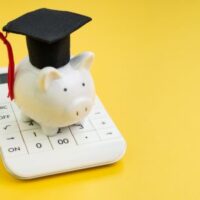Can You Discharge Student Loans in Bankruptcy?

The good news is that everyone has the right to discharge unpayable debts in bankruptcy, but the bad news is that not all debts are eligible for discharge. In general, it is easy to discharge debts that you owe to private lenders, such as credit card companies and hospitals, but if the creditor is a government entity, you will probably still be responsible for paying it even after your bankruptcy case is complete. Therefore, some people file for bankruptcy so that they can discharge their credit card debts, medical bills, and business debts in order to free up funds for tax debt, overdue child support, or lawsuit judgments that the court has ordered them to pay. Until recently, it was next to impossible to discharge federal student loan debt. Even though a large portion of applicants for bankruptcy protection were former students applied to discharge their federal student loans, the bankruptcy court only approved the discharge of the loans in one out of every 500 cases. The requirements for discharging federal student loan debt have become less strict, but to maximize your chances of success, you should contact a Jupiter chapter 7 bankruptcy lawyer.
How Do Bankruptcy Courts Decide If You Are Eligible for Student Loan Discharge?
When the court decides whether to discharge a debt, the main criteria are whether the borrower is genuinely ineligible to pay and whether the borrower has a history of good faith efforts to make payments toward the debt. Most debts related to the courts or other government entities are ineligible for discharge, even if you meet those criteria, but federal student loan debt is an exception.
Pursuant to the new bankruptcy guidelines issued in the fall of 2022, bankruptcy court judges have more discretion to decide whether to discharge a borrower’s student loan debt. Since then, bankruptcy cases have led to the discharge of more than $1 million. The criterion is not how much the borrower owes; one bankruptcy case discharged an outstanding balance of $6,500, while another discharged $150,000. In most cases, the borrowers have carried the debts for years, and the outstanding balances have increased, as the borrowers’ low income has enabled them only to make small payments, while the debt has accumulated interest. Federal lenders can easily get court orders to garnish borrowers’ earnings, so even if your paycheck or tax refund check is already being garnished to pay down your student loans, you may still be able to discharge your outstanding student loan balance in bankruptcy. If you have been using credit cards and buy now pay later (BNPL) to pay your bills so that you could free up funds to pay toward your student loans, your bankruptcy case may also enable you to discharge those debts.
Work With a Debt Lawyer About Student Loan Debt
A South Florida debt lawyer can help you out whether a bankruptcy filing is the best solution to your student loan debt problem. Contact Nowack & Olson, PLLC in JUpiter, Florida to discuss your case.
Source:
cnbc.com/2024/06/12/bankruptcy-is-now-easier-for-student-loan-borrowers-now.html
